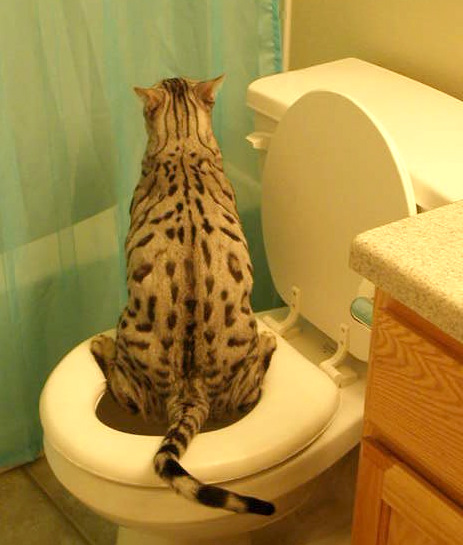Avoid Plumbing Problems: Don't Flush Cat Poop Down Your Toilet - Professional Guidance
Avoid Plumbing Problems: Don't Flush Cat Poop Down Your Toilet - Professional Guidance
Blog Article
We have uncovered this post pertaining to How to Dispose of Cat Poop and Litter Without Plastic Bags below on the web and accepted it made perfect sense to discuss it with you here.

Intro
As feline owners, it's essential to bear in mind exactly how we deal with our feline friends' waste. While it might seem hassle-free to flush pet cat poop down the bathroom, this practice can have damaging consequences for both the setting and human health and wellness.
Alternatives to Flushing
Fortunately, there are much safer and more liable ways to take care of feline poop. Take into consideration the complying with options:
1. Scoop and Dispose in Trash
One of the most common approach of getting rid of pet cat poop is to scoop it into an eco-friendly bag and throw it in the trash. Make certain to use a specialized litter inside story and get rid of the waste without delay.
2. Use Biodegradable Litter
Select biodegradable feline clutter made from products such as corn or wheat. These litters are eco-friendly and can be securely dealt with in the garbage.
3. Bury in the Yard
If you have a backyard, consider burying feline waste in a marked location away from vegetable yards and water resources. Be sure to dig deep enough to avoid contamination of groundwater.
4. Mount a Pet Waste Disposal System
Invest in an animal garbage disposal system especially designed for cat waste. These systems utilize enzymes to break down the waste, lowering smell and ecological impact.
Health and wellness Risks
Along with environmental issues, flushing feline waste can additionally posture health risks to people. Feline feces may consist of Toxoplasma gondii, a bloodsucker that can create toxoplasmosis-- a possibly serious health problem, especially for expectant females and individuals with weakened body immune systems.
Environmental Impact
Purging pet cat poop introduces dangerous pathogens and parasites into the water, posing a considerable threat to aquatic environments. These contaminants can negatively affect aquatic life and compromise water high quality.
Conclusion
Accountable pet dog ownership extends past giving food and shelter-- it also includes correct waste monitoring. By refraining from flushing feline poop down the toilet and selecting different disposal approaches, we can minimize our environmental impact and secure human wellness.
Why Can’t I Flush Cat Poop?
It Spreads a Parasite
Cats are frequently infected with a parasite called toxoplasma gondii. The parasite causes an infection called toxoplasmosis. It is usually harmless to cats. The parasite only uses cat poop as a host for its eggs. Otherwise, the cat’s immune system usually keeps the infection at low enough levels to maintain its own health. But it does not stop the develop of eggs. These eggs are tiny and surprisingly tough. They may survive for a year before they begin to grow. But that’s the problem.
Our wastewater system is not designed to deal with toxoplasmosis eggs. Instead, most eggs will flush from your toilet into sewers and wastewater management plants. After the sewage is treated for many other harmful things in it, it is typically released into local rivers, lakes, or oceans. Here, the toxoplasmosis eggs can find new hosts, including starfish, crabs, otters, and many other wildlife. For many, this is a significant risk to their health. Toxoplasmosis can also end up infecting water sources that are important for agriculture, which means our deer, pigs, and sheep can get infected too.
Is There Risk to Humans?
There can be a risk to human life from flushing cat poop down the toilet. If you do so, the parasites from your cat’s poop can end up in shellfish, game animals, or livestock. If this meat is then served raw or undercooked, the people who eat it can get sick.
In fact, according to the CDC, 40 million people in the United States are infected with toxoplasma gondii. They get it from exposure to infected seafood, or from some kind of cat poop contamination, like drinking from a stream that is contaminated or touching anything that has come into contact with cat poop. That includes just cleaning a cat litter box.
Most people who get infected with these parasites will not develop any symptoms. However, for pregnant women or for those with compromised immune systems, the parasite can cause severe health problems.
How to Handle Cat Poop
The best way to handle cat poop is actually to clean the box more often. The eggs that the parasite sheds will not become active until one to five days after the cat poops. That means that if you clean daily, you’re much less likely to come into direct contact with infectious eggs.
That said, always dispose of cat poop in the garbage and not down the toilet. Wash your hands before and after you clean the litter box, and bring the bag of poop right outside to your garbage bins.
https://trenchlesssolutionsusa.com/why-cant-i-flush-cat-poop/
As a keen person who reads about Can You Flush Cat Poop Down The Toilet?, I assumed sharing that piece of content was essential. Sharing is nice. You won't know, you may very well be doing someone a favor. Thank you for your time invested reading it.
This Website Report this page